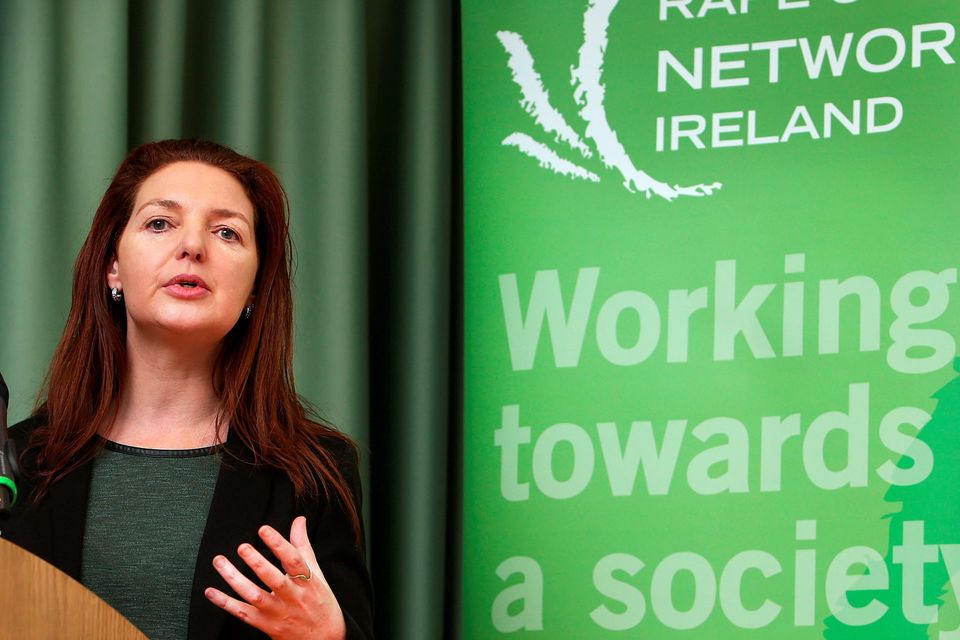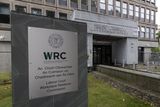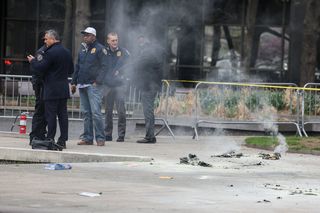Asylum seeking children 'particularly vulnerable to sexual violence', report warns
Fiona Neary, director of the RCNI, is aware of budget crisis. Photo: Steve Humphreys
Asylum seekers in the Direct Provision system are increasingly vulnerable to sexual violence, a report has warned.
Five Rape Crisis centres around the country have warned that young girls are particularly at risk of being targeted by men and called for the state-ordered accommodation to be overhauled.
Children in the system are regarded as being incredibly vulnerable to grooming and abuse.
The Rape Crisis Network Ireland (RCNI) said 54 asylum seekers and seven refugees reported 69 incidents of sexual abuse to them in 2012 - a 44% decrease on the previous year.
The study revealed seven incidents of forced prostitution and/or trafficking, in line with Garda figures.
The vast majority of attacks happened in the country of origin, with 93% of victims from war-torn parts of Africa and the rest from Asia. Almost a quarter of victims came from the Democratic Republic of Congo or the Republic of Congo; 13% from Zimbabwe; 12% from Nigeria; and 10% from Uganda.
But the RCNI warned the system of Direct Provision is compounding asylum seekers' problems as it leaves them with low self-worth, little money, usually no family and they are easily targeted and manipulated.
Fiona Neary, executive director of the RCNI, said a 40% drop in the number of asylum seekers or refugees seeking help between 2011 and 2012 shows the barriers they face in taking up support.
"This report provides clear evidence that significant reforms are urgently necessary in the Direct Provision system to halt the risk of sexual violence to vulnerable residents and minimise the psychological harm to survivors," she said.
A working group in the Department of Justice and Equality set up to review the practice of Direct Provision within a year meets next week for the first time.
But more than 100 academics have called for the group to resign before their work begins. They claimed the department is furthering silencing asylum seekers by forcing them to continue to live in what they call "open prisons" and by ignoring their testimony.
The RCNI report showed 91% of the reported incidents involved rape and 92% of the victims were women. Only 1% of the 159 perpetrators were reported to be women.
Three victims were under 13 and 27 aged between 13 and 17.
Some 90% of sex attacks also involved violence - compared with the average in Ireland of 70%.
The RCNI also said interviews and counselling showed asylum seekers were highly likely to report multiple perpetrators.
More than half of the incidents involved more than one attacker and 11% involved five or more, suggesting gang rape and sex slavery. The rate in Ireland is about one in 10.
Other figures from the study revealed 14% of the abuse resulted in pregnancies and more than two-thirds of the women affected in this way are now parenting the child.
The report put the number of asylum seekers in Ireland at about 5,000, with the average wait for refugee status being seven years. Less than 6% of asylum applications result in the right to stay and the number of new applicants has fallen dramatically from 11,634 in 2002 to 956 in 2012.
Evidence from the RCNI study, including detailed analysis of interviews with victims, showed 41% of people affected by sexual violence in war zones were assaulted by security forces or in locations associated with conflict such as rebel or government detention camps and prisons.
But the RCNI also warned that the process of migration, asylum and refuge increases the risk of abuse in transit and in the destination state, suggesting some asylum seekers may be targeted in their home country, as they flee or in their host country, or all three.
Join the Irish Independent WhatsApp channel
Stay up to date with all the latest news















